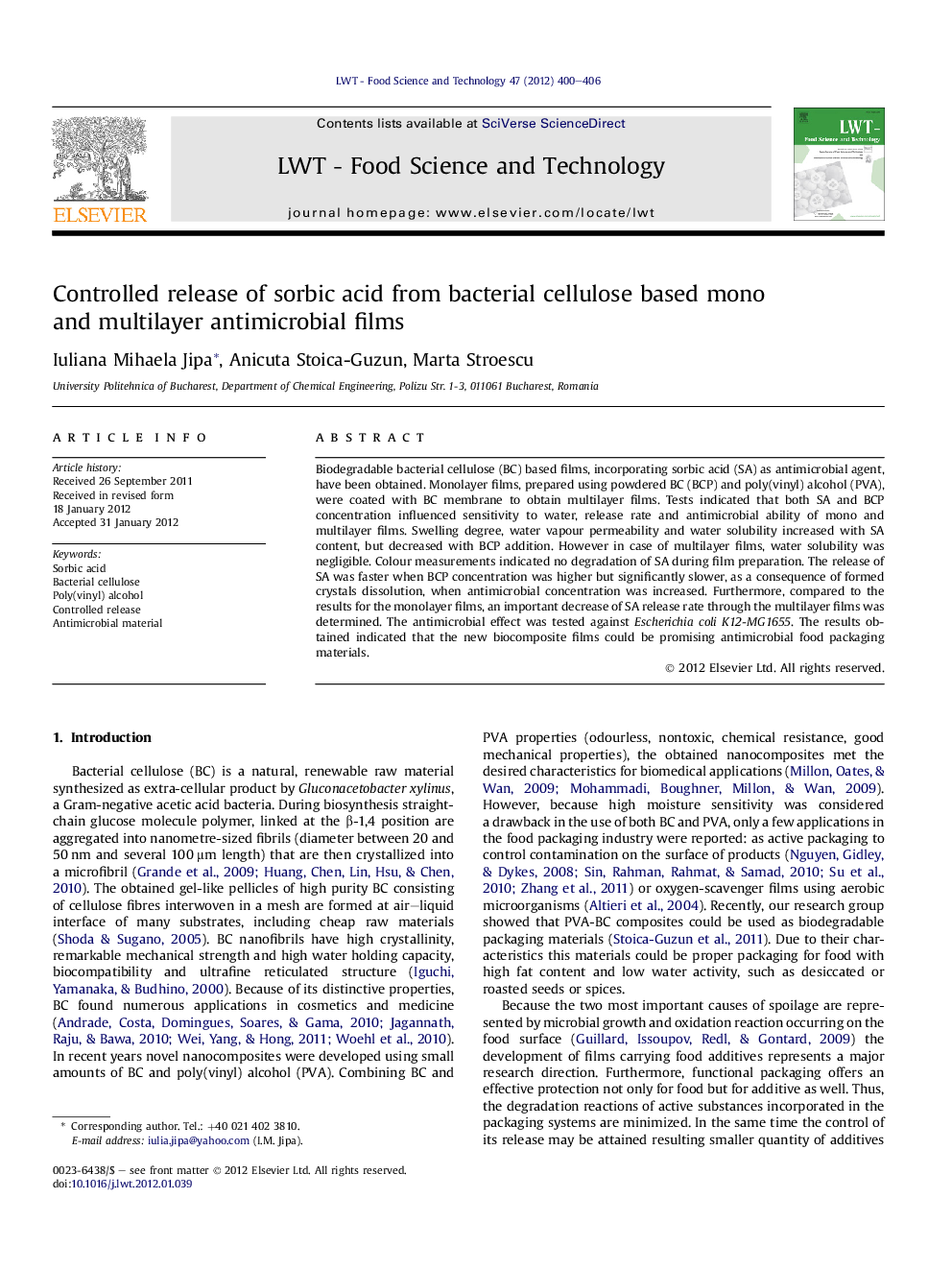| Article ID | Journal | Published Year | Pages | File Type |
|---|---|---|---|---|
| 6405567 | LWT - Food Science and Technology | 2012 | 7 Pages |
Biodegradable bacterial cellulose (BC) based films, incorporating sorbic acid (SA) as antimicrobial agent, have been obtained. Monolayer films, prepared using powdered BC (BCP) and poly(vinyl) alcohol (PVA), were coated with BC membrane to obtain multilayer films. Tests indicated that both SA and BCP concentration influenced sensitivity to water, release rate and antimicrobial ability of mono and multilayer films. Swelling degree, water vapour permeability and water solubility increased with SA content, but decreased with BCP addition. However in case of multilayer films, water solubility was negligible. Colour measurements indicated no degradation of SA during film preparation. The release of SA was faster when BCP concentration was higher but significantly slower, as a consequence of formed crystals dissolution, when antimicrobial concentration was increased. Furthermore, compared to the results for the monolayer films, an important decrease of SA release rate through the multilayer films was determined. The antimicrobial effect was tested against Escherichia coli K12-MG1655. The results obtained indicated that the new biocomposite films could be promising antimicrobial food packaging materials.
⺠Bacterial cellulose based mono and multilayer active films were obtained. ⺠Release of sorbic acid incorporated as antimicrobial depends on crystal dissolution. ⺠The composites have antimicrobial properties which were tested against E. coli.
